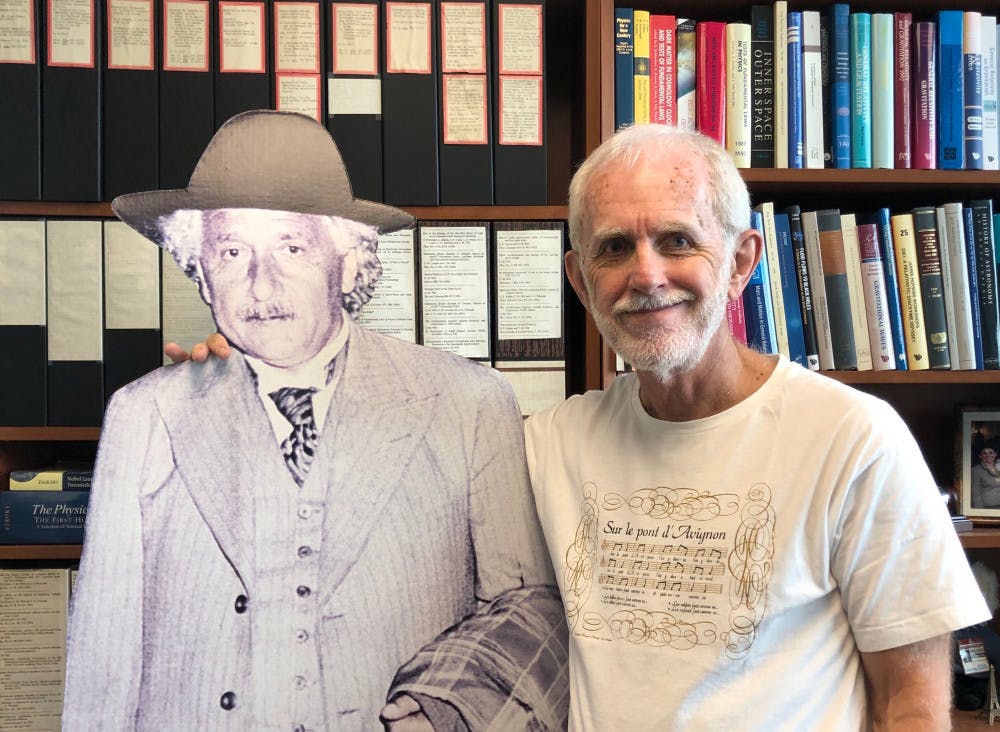UF professor Clifford Will looks no further than physics for relaxation.
After 50 years of studying physics, including seven at UF, Will is the first UF physicist to be awarded the Albert Einstein Medal.
The Albert Einstein Medal is given to physicists who have studied Einstein’s work and created their own findings or publications. Physicists are nominated anonymously and voted on by the Board of Trustees. Stephen Hawking received the first medal in 1979.
Will, 73, will receive the 2019 medal for his work on Einstein’s theory of general relativity, which says everything moves relative to other objects, on June 6 in Bern, Switzerland.
Will was nominated for his observable ideas of Einstein’s theory, like measurements with telescopes and space crafts, instead of its complicated mathematics.
Will said he didn’t expect to receive this award, but he loves physics, saying he can’t think of anything that’s more fun. He said he likes to predict the future and understand nature through the field.
“It’s a great honor to be included in a list of names of people who are great figures in the field,” Will said.
His research earned him the award and recognition, he said.
Outside of his research, Will mentors young researchers of Einstein’s theory and hosts an annual seminar in Florida, said Kevin Ingersent, the UF physics department chair.
“We’re proud of Professor Will,” Ingersent said. “He already had a strong reputation as a leader in his area, and he’s continued that work.”
Ingersent said Will’s work and the work of other medal winners is important because it determines if Einstein’s theory is complete or there is further research to uncover.
Whenever questioned about retirement, Will said he will never stop doing what he loves.
“My friends who are not scientists say ‘When are you going to retire?’ and I say never,” he said. “I will always keep doing physics.”
Professor Will Clifford will receive the 2019 Albert Einstein Medal after 50 years of studying Einstein’s theory of relativity.





![Photo of the missing Leachianus “Leachie” gecko. [Photo courtesy of Mike Southwick]](https://snworksceo.imgix.net/ufa/907bd92a-0b29-40eb-a5fb-d7db7cf98b2f.sized-1000x1000.jpg?w=1500&ar=16%3A9&fit=crop&crop=faces&facepad=3&auto=format)
